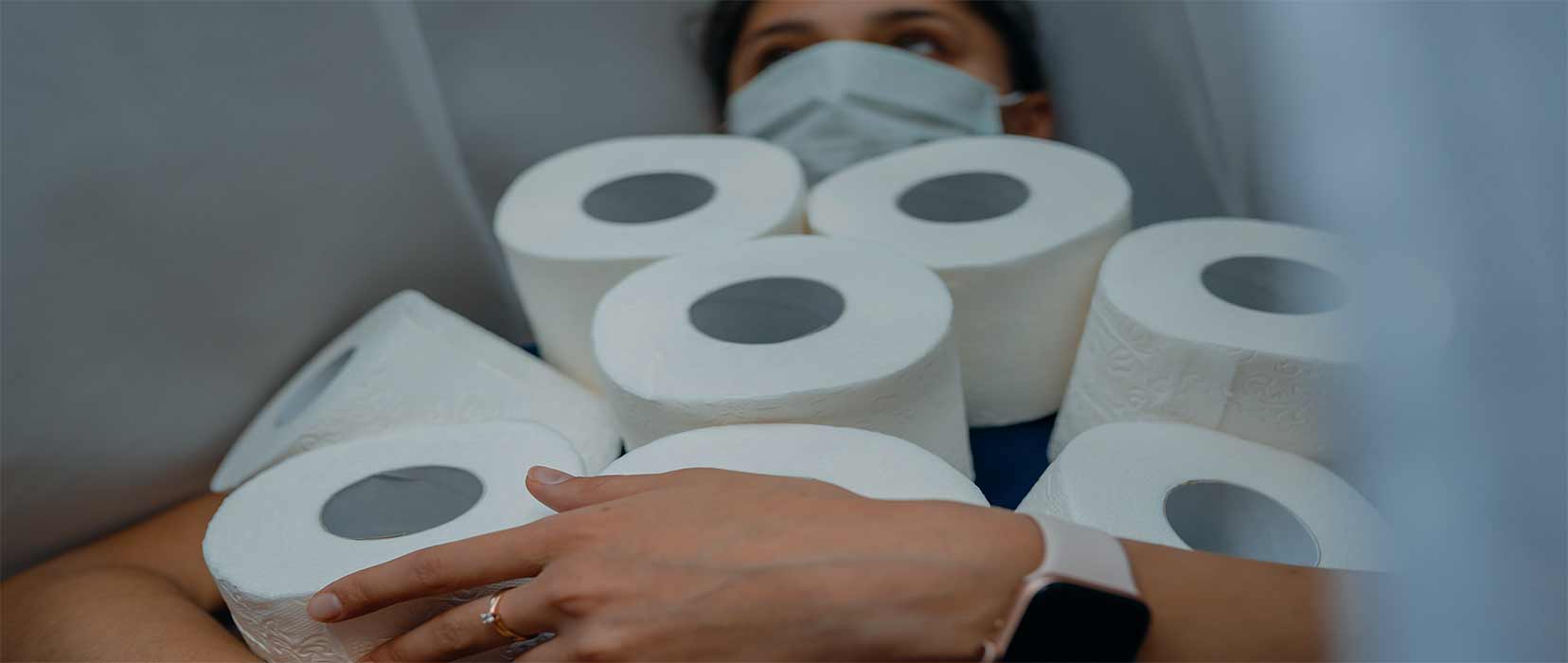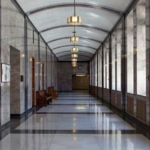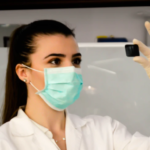Hoarding During the Covid-19 Pandemic Can Be Criminal
At the beginning of the Covid-19 pandemic, private people and companies began purchasing food, medical supplies, sanitary products, and housewares.

The government is now accusing some businesses of illegal hoarding and price-gouging.
Because the rules regarding setting prices during a health emergency are unclear and unfamiliar, innocent people can be accused of a crime, such as illegal hoarding and price-gouging. Anti-hoarding laws are not well-publicized, and companies have no reason to review laws that apply during health emergencies routinely. As a result, people may unintentionally violate state or federal hoarding laws prohibiting illegal hoarding and price-gouging. There are defenses to these allegations, and misdemeanor and felony convictions may be avoided with a strong defense.
What is hoarding?
The law is concerned with gathering items that are valuable and needed by society during an emergency. Things like toilet paper, medication, sanitary products, cleaning supplies, and housewares may be in short supply. There will be an increased demand from a population driven to purchase food and supplies based on fear or panic of a shortage. It is common for companies to raise prices in response to increased demand during these situations. Illegal hoarding and price-gouging may occur when prices are increased substantially or the needed products are stockpiled. Because these laws are not well known, state and federal anti-hoarding laws may be inadvertently violated.
State and Federal Hoarding and Price-Gouging Laws During a Health Emergency
When there is a public emergency, such as a pandemic, natural disaster, or terror attack, state and federal agencies will publicly warn against hoarding and price-gouging. During the Covid-19 health emergency, the United States Attorney for the Eastern District of Michigan, Matthew Schneider, was quoted as saying:
“We’re not going after regular people in Michigan who are stocking up in a reasonable manner or businesses who are making smart storage decisions,” said Schneider. “But if you’re hoarding goods far above what you need, or if you’re trying to rip off the people of Michigan by profiting from the pandemic, we will be targeting you.”
Matthew Schneider – United States Attorney for the Eastern District of Michigan

Prosecution for Hoarding, Profiteering, and Price-Gouging
Companies and Businesses – Businesses can hoard and corner the market more readily than private citizens; therefore, they are the priority for law enforcement investigations. The federal government, under an Executive Order issued by President Trump during the Corvid-19 pandemic, authorized the Secretary of Health and Human Services to designate, under the Defense Production Act (DPA), certain specified items such as personal protection equipment (PPE) and medical supplies as being covered by the Act. If certain items have been designated as falling under the DPA, it is a federal crime for a business to “collect that item in excess of their reasonable needs or to sell it in excess of current market prices.”
Even legitimate large chain supermarkets may be investigated by law enforcement when it has become known that they increased the prices of health-related items, cleaning products, and other merchandise by an excessive amount over ordinary prices. This is an example of price-gouging to exploit scared consumers who might be illegally hoarding.
Michigan’s price gouging law states that “unfair, unconscionable, or deceptive methods, acts, or practices in the conduct of trade are unlawful and are defined as follows: … charging the consumer a price that is grossly in excess of the price at which similar property or services are sold.”
Federal and state criminal anti-hoarding and price-gouging laws apply to individuals and businesses.
State and Federal Penalties for Hoarding and Price-Gouging
The federal penalty for hoarding is up to 1 year of imprisonment and a $10,000.00 fine. The federal government has set up a “Justice Department’s Covid-19 Price-Gouging and Hoarding Task Force” to track down and punish violators. They have also set up a website to report profiteering activity. If a company, for example, has gone on the open market through channels they use in their usual supply chain business and buys 200,000 cases of designated items, then offers them for sale at 150% of the normal market price, they will need to hire private, retained defense counsel as soon as possible.
In Michigan, violating anti-hoarding laws can result in jail time, fines, and years of court-supervised probation. A conviction for price-gouging can significantly damage a business’s reputation, and it may be challenging to stay in operation.

Example of Items that May be Illegally Hoarded
- N-95 Filtering Facepiece
- Filtering Facepiece Respirators (such as N-95 facemasks)
- Elastomeric, air-purifying respirators and appropriate particulate filters/cartridges
- Powered Air Purifying Respirator (PAPR)
- Ventilators (including portable devices intended to control or assist patient breathing mechanically)
- Medications
- Disinfecting devices and other sanitizing and disinfecting products
- Medical gowns or apparel, personal protective equipment (PPE) (face masks, face shields, and gloves)
As long as a citizen intends to purchase items for themselves and their family, within reason, there is no violation of the law. People do not want to be caught selling toilet paper and hand sanitizer out of their garage, such as neighbors or on the internet, for far over the market price. It should be noted that there appears to be a trend of people “snitching” on people they suspect, so everyone should be wary of false allegations.
Prosecutions of individuals and companies for price-gouging and illegal hoarding make for good media for government officials, and this can result in overzealous charging and prosecution under consumer protection laws. The best way to avoid prosecution and a conviction is with an aggressive, experienced, and savvy defense lawyer who will not hesitate to fight to protect and defend you from overzealous law enforcement or an unfair criminal charge.
What if my company or I have been wrongly charged with hoarding and profiteering?
The law makes the government’s main focus profiteering from hoarding designated medical supplies and PPE. The law punishes individuals and companies that knowingly hoard or raise prices so that citizens may be harmed or endangered. However, in these stressful times, an overly ambitious prosecutor may attempt to “set an example” by charging a person whose only intention was to make a fair and honest living. If you are under investigation or charged in court, you would be well-advised to retain a reputable attorney immediately. A reputable, highly-regarded, and experienced criminal defense attorney to get to work on getting the charges dismissed, and the case was thrown out of court.
How to Avoid Jail and Other Penalties for Hoarding and Price-Gouging
Like prosecutors, judges seek to make an example of anyone or any company accused of price gouging during a health or public emergency. As you may imagine, those accused of these crimes are villainized in court and the community and can be unfairly and harshly punished. A skilled and highly reputable lawyer will have the best chance of humanizing their client and convincing the judge that good people sometimes make mistakes and that rehabilitation is preferable to punishment.

Elite Criminal Defense Firm Defending Against Hoarding and Price Gouging Charges
The hoarding and profiteering crimes in force in Michigan and the United States are only one facet of the newly developing Coronavirus – Covid-19-related legal activity in Michigan. We stand on guard to vigorously come to your defense for any Coronavirus-related case, including an allegation of hoarding and profiteering.
The zealous and tenacious Defense Team at LEWIS & DICKSTEIN, P.L.L.C. will not be intimidated by government overreach. We have successfully defended thousands of clients in Michigan courts and federal courts. We are uniquely equipped and experienced to handle charges, such as Coronavirus – Covid-19 cases. We are still not afraid to win, even in these stressful, uncertain times!
Call us today at (248) 263-6800 for a free consultation or complete an online Request for Assistance Form. We will contact you promptly and find a way to help you.













